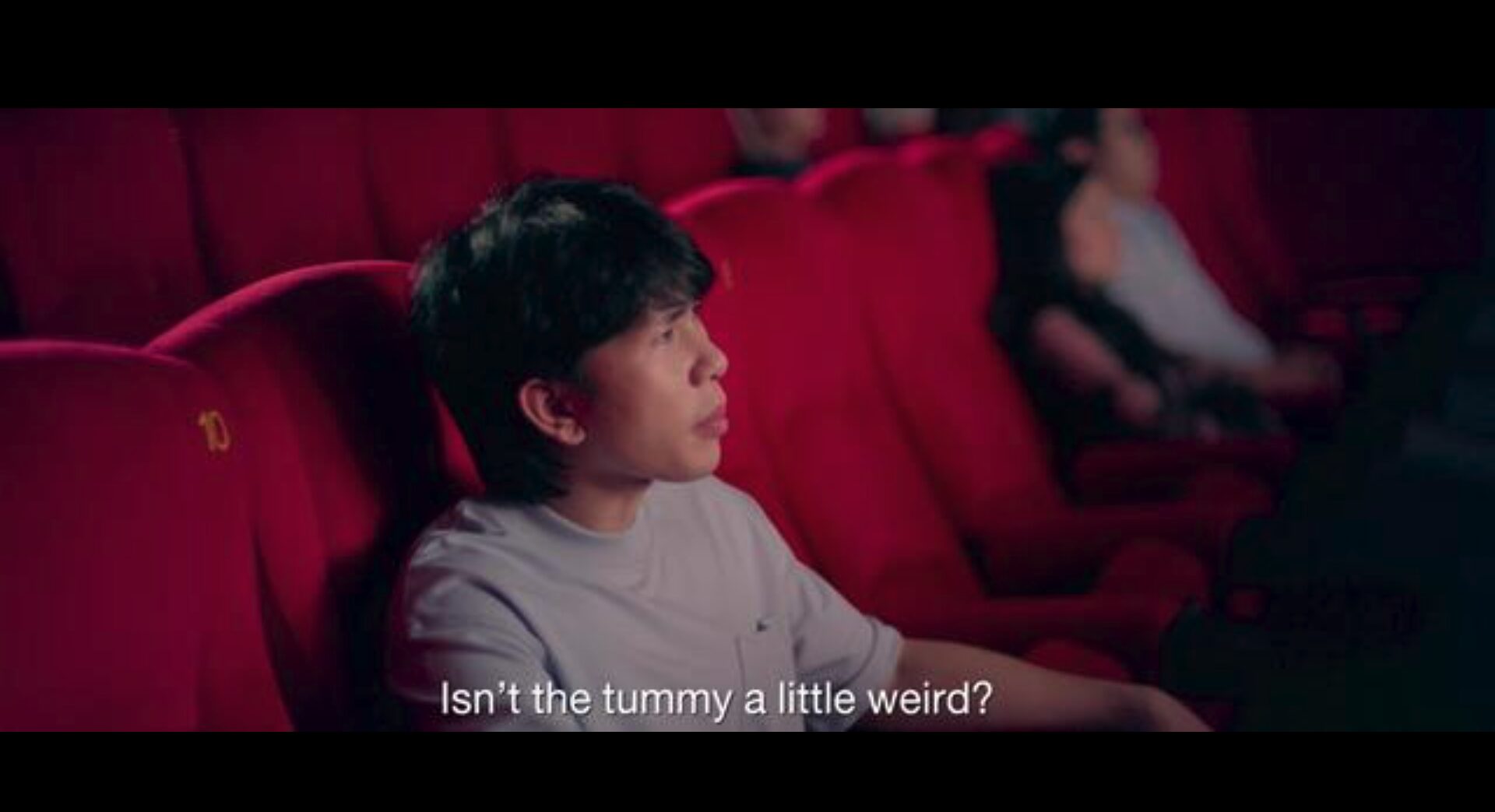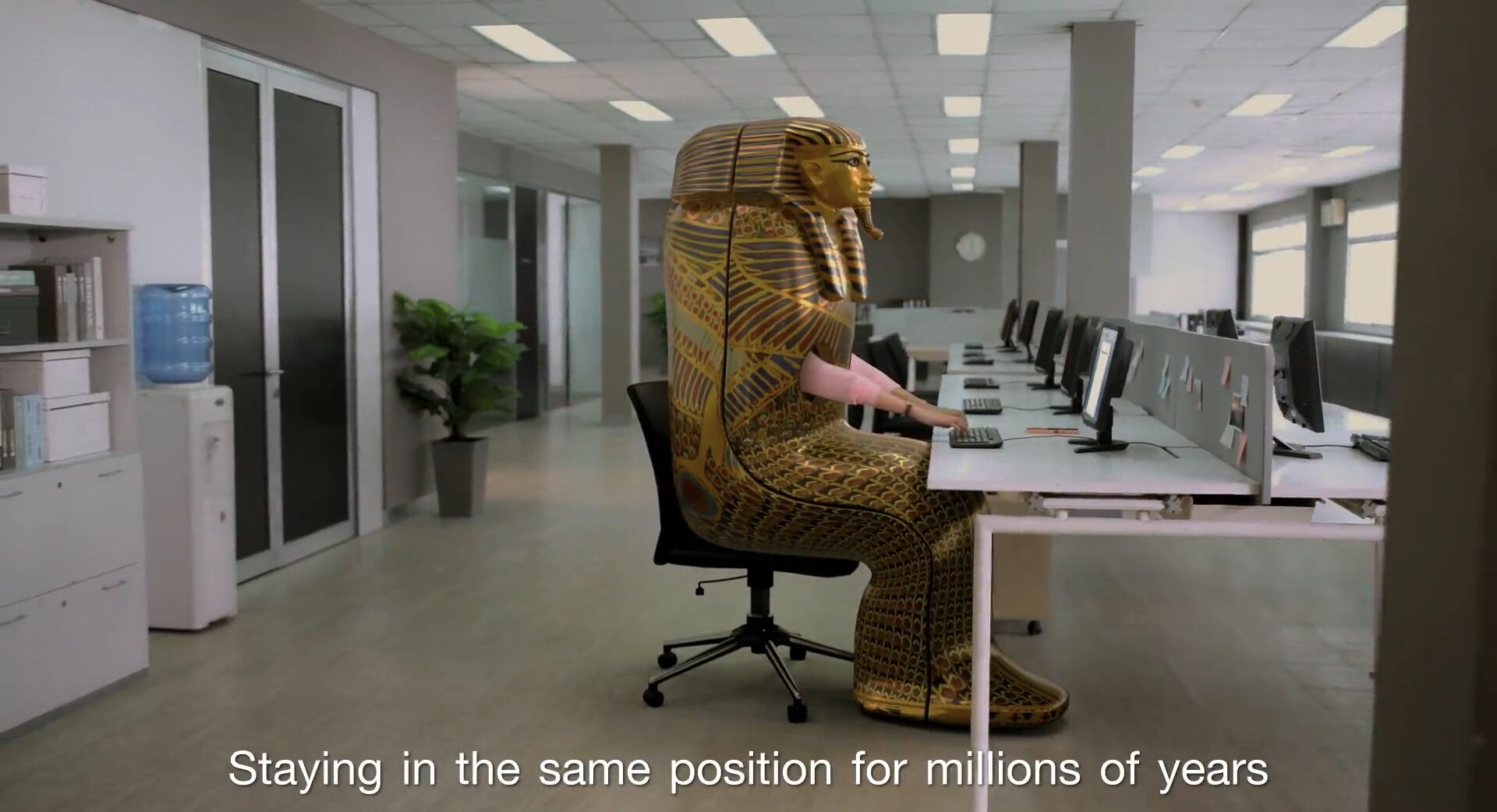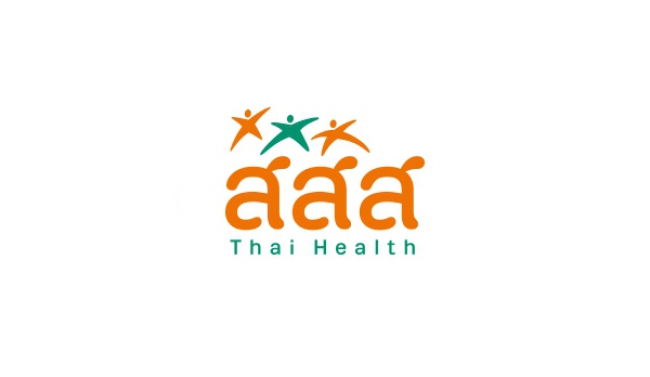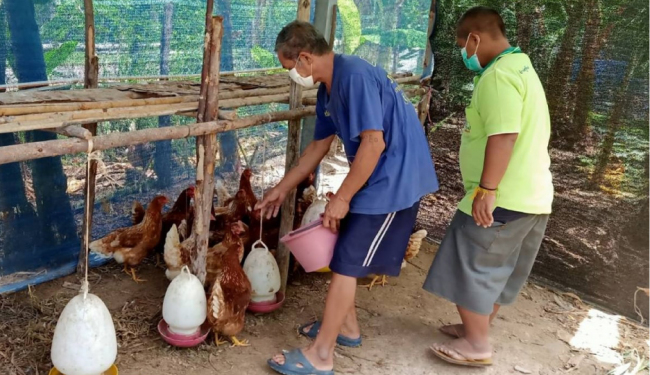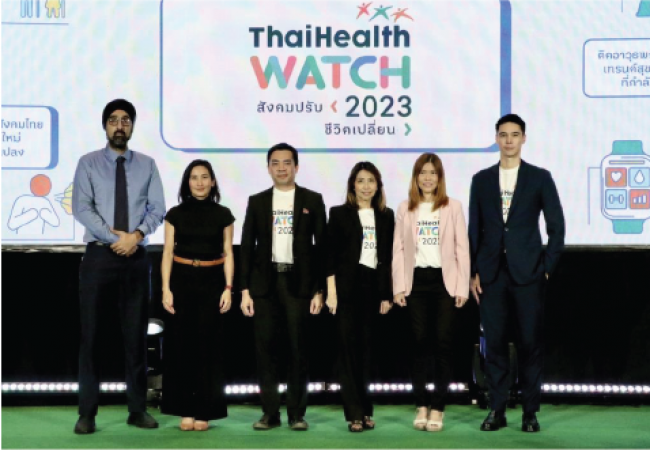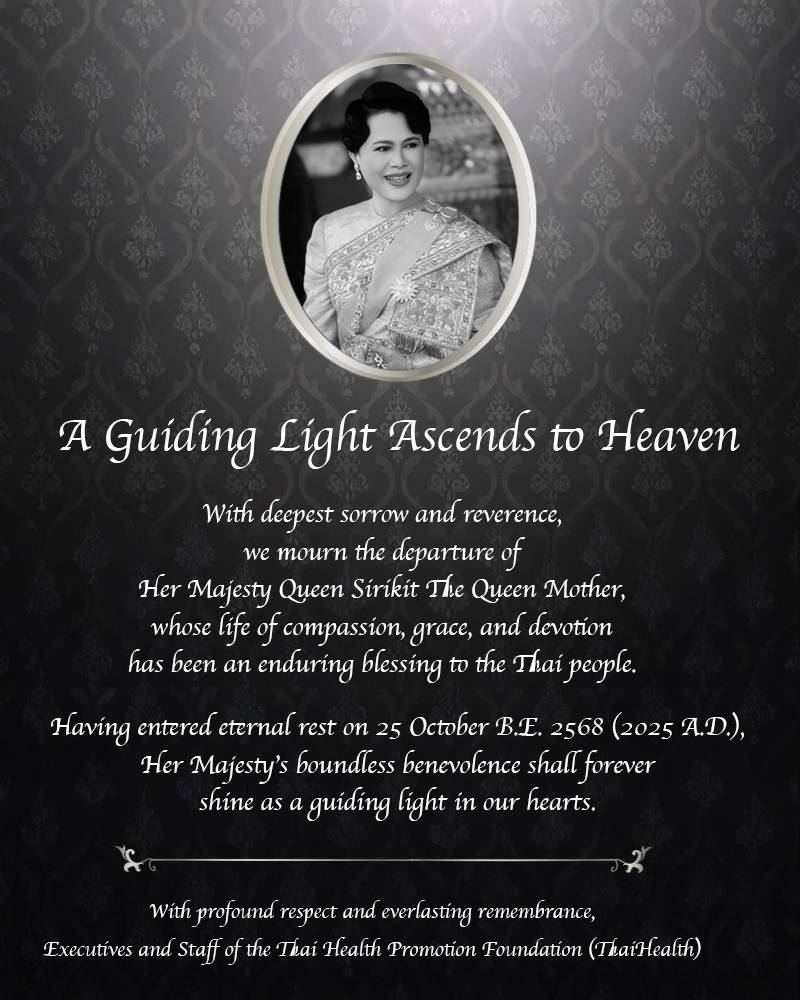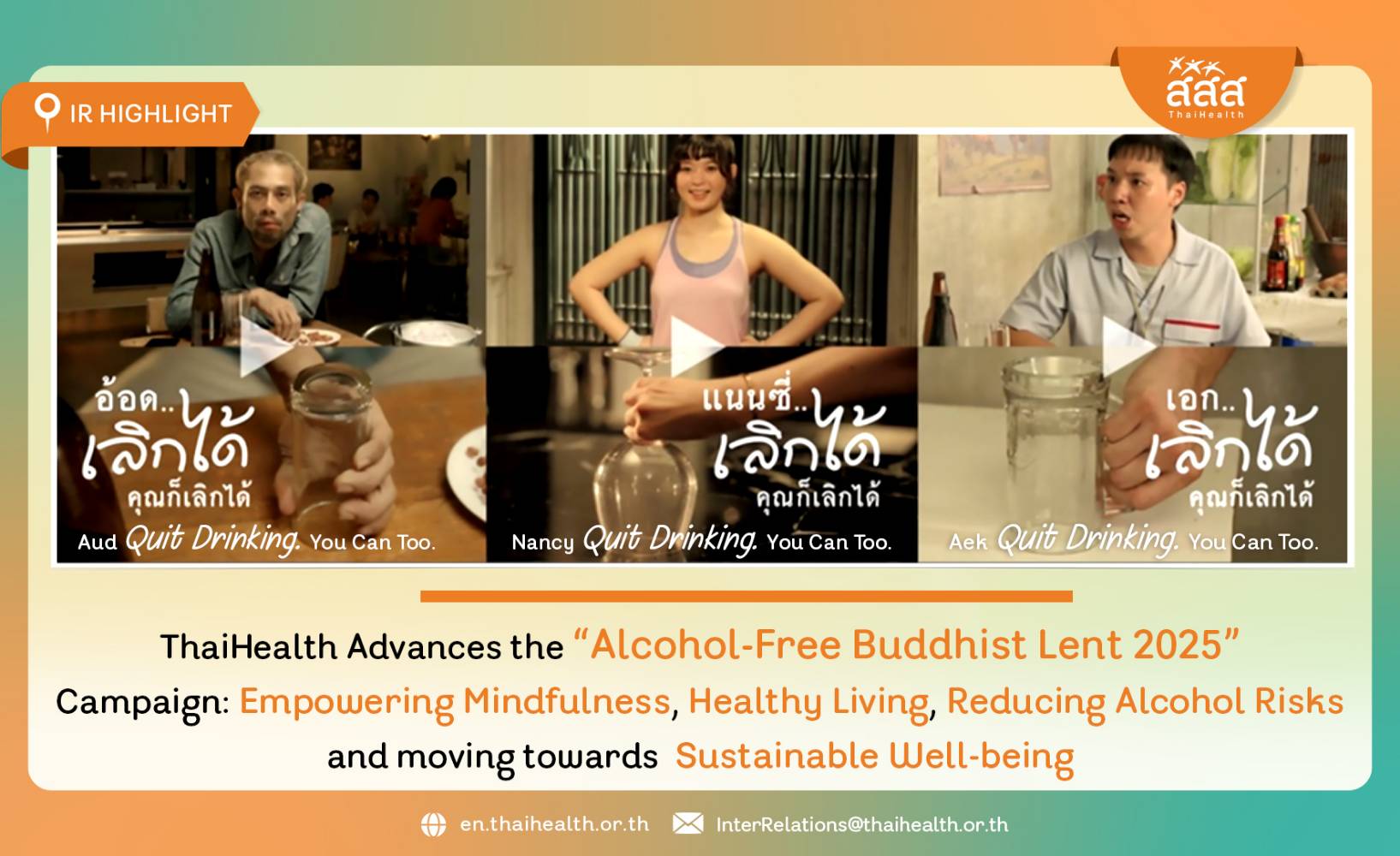
ThaiHealth Advances the “Alcohol-Free Buddhist Lent 2025” Campaign: Empowering Mindfulness, Healthy Living, Reducing Alcohol Risks and moving towards Sustainable Well-being
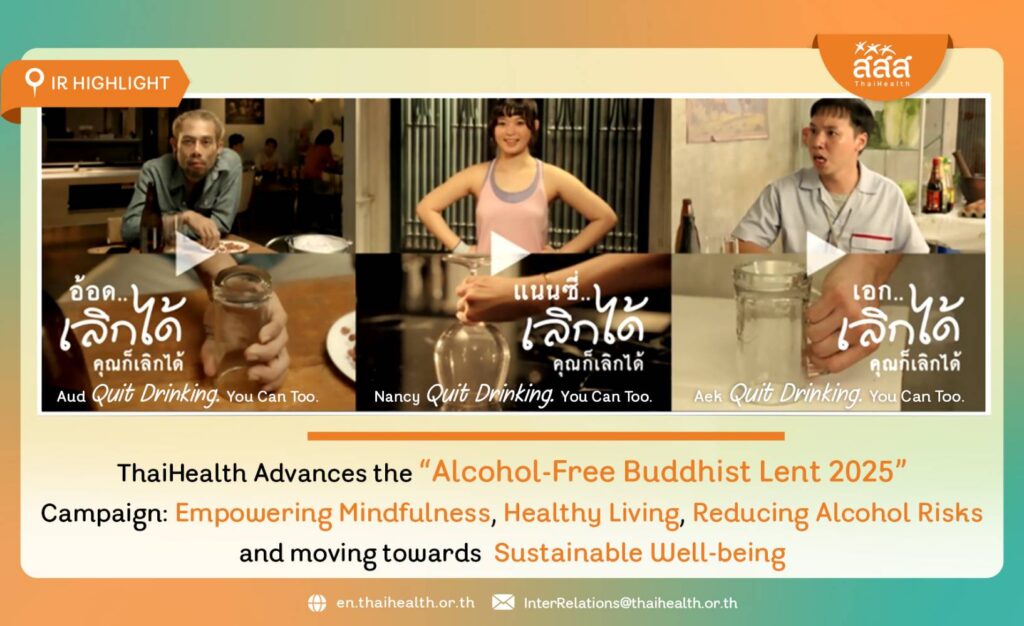
ThaiHealth Advances the “Alcohol-Free Buddhist Lent 2025” Campaign: Empowering Mindfulness, Healthy Living, Reducing Alcohol Risks and moving towards Sustainable Well-being
The annual Buddhist Lent has marked a meaningful period where many Thais take the opportunity to “abstain from alcohol” to revitalize their physical and mental health as well as strengthen family relationships. In 2025, the Thai Health Promotion Foundation (ThaiHealth) has launched the
“Season of Mindfulness: Alcohol-Free Buddhist Lent 2025” campaign guided by the concept “Mindful and Joyful on Every Occasion.” The initiative draws on cultural values and social campaign strategies to bring about a sustained decline in alcohol consumption among Thais.
Campaign: “Mindful and Joyful on Every Occasion”
Dr. Pongthep Wongwatcharapaiboon, M.D., CEO of ThaiHealth, explained that this year’s Alcohol-Free Buddhist Lent is designed not only to promote short-term alcohol abstinence among people but also to achieve “long-term change” in their drinking behaviors. Therefore, ThaiHealth has broadened its campaign to promote continuous alcohol abstinence during all festivals, inviting people of all religions to join for their own health, their families, and their loved ones.
Notably, this campaign is comparable to the international campaigns such as “Dry January” in the
United Kingdom or “Dry July” in Australia. However, the uniqueness of the Thai campaign lies in its use of the Buddhist Lent period, which lasts three months and is deeply grounded in cultural traditions that reinforce behavioral change.
Better Habits, Greater Savings, Better Lives
As mentioned by the CEO of ThaiHealth, the 2024 assessment of the Alcohol-Free Buddhist Lent campaign by the Research Centre for Social and Business Development (SAB) reported that 13,154,239 of Thais took part. Among this figure, 7,646,408 of individuals (58.1%) quitted drinking throughout the Buddhist Lent period, 2,681,000 of them (20.4%) practiced this for part of the period, and 2,826,831 of them (21.5%)
cut down on drinking. Notably, 73% of these respondents reported at least one benefit from quitting alcohol during Lent.
Specifically, these benefits included better physical health (48.6%), cost savings (40.5%), and improved mental health (31.4%), which contributed to total savings in excess of 10 billion Baht. In addition, over half of the respondents, or 58.4%, expressed their intention to continue reducing or refraining from alcohol consumption for another year, highlighting the prospects for sustained behavioral change.
Additionally, research led by Dr. Udomsak Saengow, M.D., and his colleagues carried out a population-level analysis, comparing alcohol sales prior to the 2003 launch of the Alcohol-Free Buddhist Lent campaign with those during the three-month campaign period. The campaign was seen to result in a 9.97% decline in alcohol consumption among Thais.
According to Assoc. Prof. Dr. Polathep Vichitkunakorn, M.D., the Director of the Centre for Alcohol Studies (CAS), Prince of Songkla University, the data from the Department of Disease Control revealed that between 2019 and 2023, there were nearly 57,000 alcohol-related road accident injuries and deaths in Thailand each year. The figure exceeded 284,000 cases over five years, with economic losses in excess of 370 billion baht.
In addition to road accidents, almost 80% of Thais have been affected by others’ drinking, whether in the form of physical injury, mental distress, or family issues. On average, the social cost per drinker amounts to 498,196 baht, rising to 721,344 baht among male drinkers.
Alcohol is also classified as one of the leading risk factors for non-communicable diseases (NCDs) and is identified as a Group 1 carcinogen, associated with at least eight types of cancer, such as those of oral cavity, larynx, colon, rectum, breast, liver, and pancreas. These figures call for the urgent attention to advance policies and measures for promoting reduction and cessation of alcohol consumption, thereby safeguarding the economy, health, and quality of life among Thais.
Mr. Theera Watcharapranee, Director of the StopDrink Network (SDN), shared that the Alcohol-Free Buddhist Lent campaign began in 2003, drawing on religion and Thai cultural values as its cores in reshaping norms around alcohol consumption. Starting as a campaign limited to the Buddhist Lent period, it has since then grown into a year-round initiative, advancing provincial and national policy.
The years between 2022 and 2024 saw the growth of participating network partners from 2,500 to 3,500, with 1,010 signing commitments under the SoBer CHEERs program. Last year, 32,495 individuals pledged to “ordain their hearts”—commit in spirit—by abstaining from alcohol, while the number of lifetime abstainers, or known as “Diamond Hearts,” rose dramatically from 600 to over 12,598.
Notably, these figures reveal not only a shift in behavior but also a tangible outcome. Economically, those who quitted drinking managed to save over 93 million baht within a year. This proves that alcohol abstinence contributes to improved health while enhancing financial security and quality of life.
Alcohol-Free Lent 2025: Let’s Be Mindful and Quit the Drinking Habit
Mr. Wichet Pichairat, a ThaiHealth Board Member, noted that this year’s Alcohol-Free Buddhist Lent campaign faces a range of challenges. Several factors may contribute to increased alcohol consumption, such as the economic downturn affecting people’s livelihoods, the government’s tourism-promotion policies which ease alcohol restrictions in certain areas or times, and initiatives to promote local liquor products. These may re-establish drinking as a normal part of social life.
In response to these challenges, ThaiHealth has adapted its strategy to people’s current lifestyles, advancing the “Alcohol-Free Lent: Let’s Be Mindful” campaign. It encourages people to draw on mindfulness to help curb drinking habits, keep their distance from alcoholic beverages, and reduce long-term health risks. The campaign also focuses on establishing alcohol abstinence as a shared cultural norm across all sectors, including communities, schools, government agencies, or the general public.
Additionally, collaboration among the government, businesses, and civil society is vital to achieving a balance between economic growth and sustainable health for the Thai population. To support those wishing to quit drinking, ThaiHealth provides the Stop Drink 1413 helpline to offer free counseling, particularly for those affected by their loved one’s drinking, as well as online counseling via www.1413.in.th or the “Nong Tangjai” chatbot through Line@1413.
Meanwhile, the Department of Disease Control, Ministry of Public Health, has launched an online Alcohol-Free Lent platform at https://noalcohol.ddc.moph.go.th where people and organizations can pledge to quit drinking, express their commitment, and advance the alcohol-free culture in Thailand.
ThaiHealth Releases “Alcohol-Free Lent: You Can Do It” Campaign Film under the Theme “Encourage Yourself to Quit Drinking”
ThaiHealth has continued its Alcohol-Free Lent advocacy by organizing activities to educate people about the dangers of alcoholic beverages. The campaign is aimed at raising awareness of “Don’t Drunk Drive” and preventing the emergence of new drinkers, focusing on children, youth, and women, whose drinking rates are steadily increasing.
In 2025, ThaiHealth rolled out the “Alcohol-Free Lent: You Can Do It” campaign film series, built around the theme “Encourage Yourself to Quit Drinking,” underscoring that change starts from within, not society or those around us. The series features three impactful, relatable short stories: Shadow, where the protagonist’s shadow is portrayed as an inner voice of warning; Nancy, showing her improved quality of life after telling herself “Don’t drink”; and Odd, where a multiverse of Odds appears to warn him.
The key message of this year’s campaign is that choosing to quit drinking is listening to one’s inner voice, choosing mindfulness, and building a better life for oneself and loved ones. A new and better life can begin with a simple act: putting the glass down.
From Thailand’s Campaign to a Global Model
While deeply embedded in Thai cultural traditions, this campaign has been internationally recognized as an exemplary model of drawing on “culture and traditions” to inspire a shift in behavior.
With its focus on “joy through mindfulness” over punishment or prohibition, alongside drawing on community support, the campaign’s approach is adaptable to many countries.
During this Buddhist Lent, take the first step to break the drinking cycle, change your habits, reduce or quit drinking: creating a better life, healthier in body and mind, for yourself and your loved ones.


